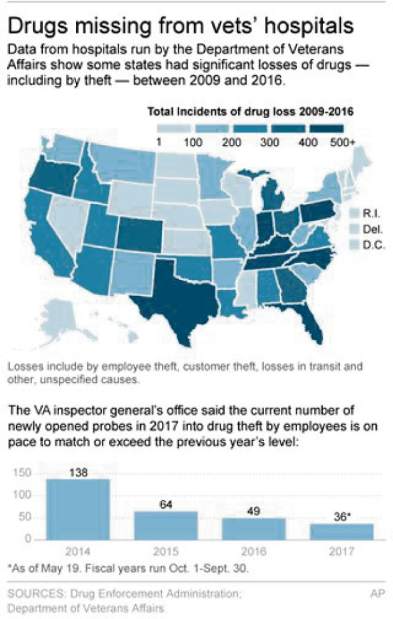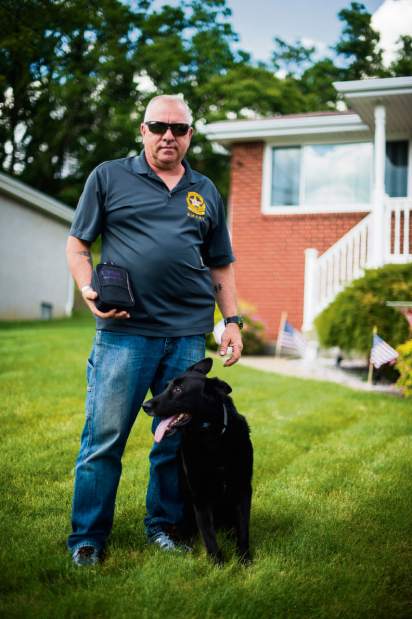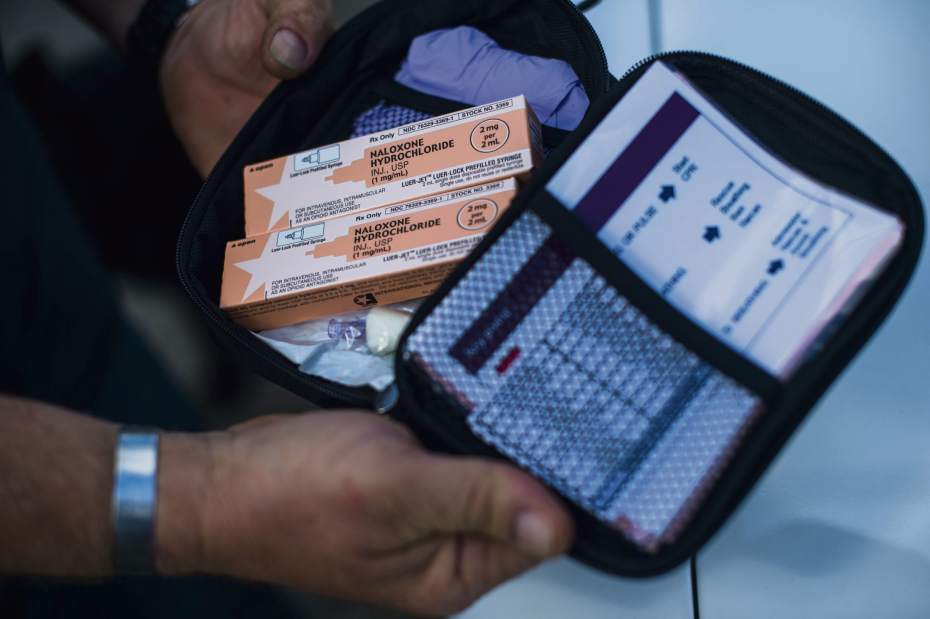The VA's drug problem: Still short of 'Zero tolerance'
As America struggles with opioid addiction's ramifications, so does the Department of Veterans Affairs, where thefts and disappearances of opioids and other drugs continue despite officials' “zero tolerance” vow in February.
Now The Associated Press reports that the VA inspector general's office opened 36 such criminal investigations between Oct. 1 and May 19, for a total of 108 open probes, “an increase from a similar period in the previous year.” And Drug Enforcement Administration data show drugs are reported missing from VA facilities at more than double the private-sector rate.
In some cases, VA personnel divert drugs to use or to sell on the street, which can leave veterans without necessary medications and in the care of impaired staff. In other cases, such as at four VA hospitals spot-checked by the Government Accountability Office, monthly drug-supply inspections were skipped or other inventory requirements weren't met.
Whatever “zero tolerance” steps the VA took after February's headlines are obviously insufficient. Thus, Congress must seriously consider bipartisan legislation co-sponsored by Sen. Marco Rubio, R-Fla., that he says would provide “the tools needed to dismiss (VA) employees engaged in misconduct.”
Given the VA health-care system's size and mission, it should be a major asset in America's opioid fight. If that requires further smoothing the road toward firing employees who make the VA a major aggravating factor in that battle, so be it.





